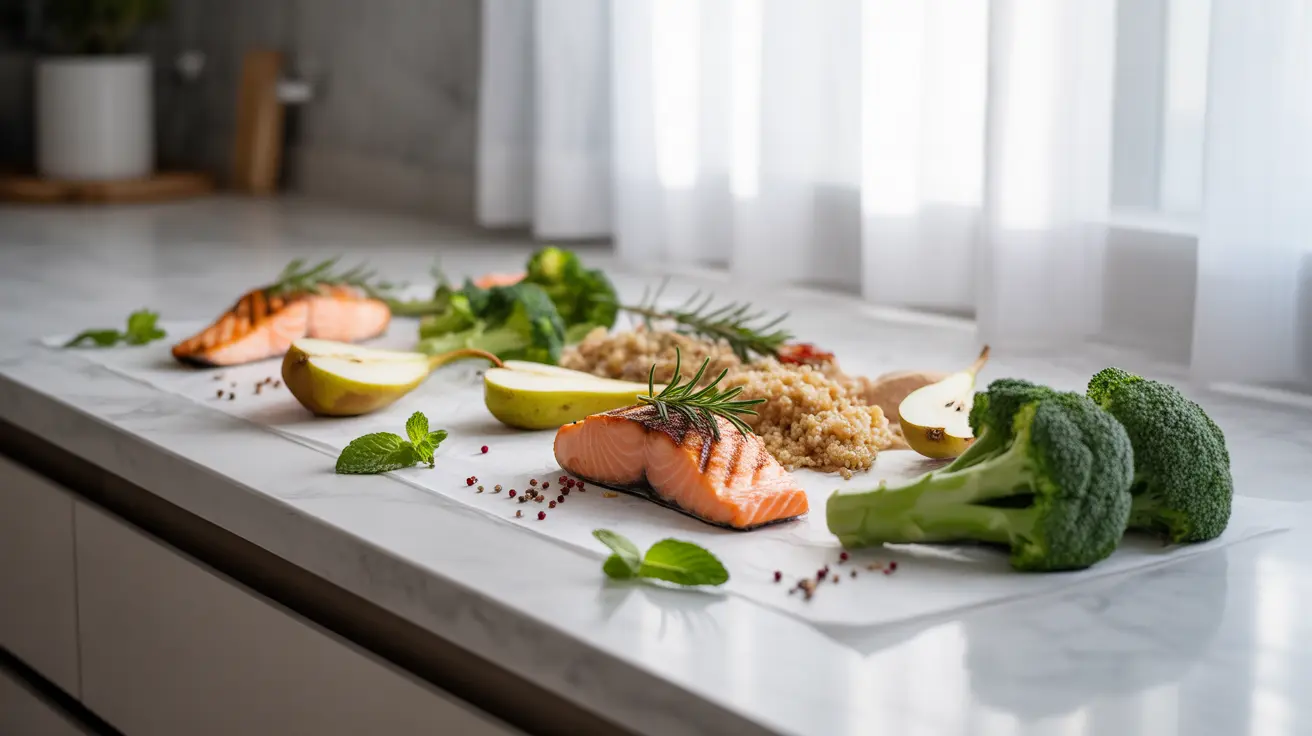Living with laryngopharyngeal reflux (LPR), also known as silent reflux, can be challenging. However, following a specific LPR diet can significantly reduce symptoms and improve your quality of life. This comprehensive guide will help you understand which foods to embrace and which to avoid while managing this condition.
Making informed dietary choices is crucial for LPR management, as certain foods can either trigger or alleviate symptoms. Let's explore the most effective dietary strategies and lifestyle modifications that can help you take control of your LPR symptoms.
Understanding the LPR Diet Basics
The LPR diet focuses on reducing acid reflux and inflammation in the throat and voice box. Unlike traditional GERD, LPR symptoms often occur without heartburn, making dietary management especially important for symptom control.
Foods to Avoid on the LPR Diet
Several foods can trigger or worsen LPR symptoms by increasing acid production or relaxing the upper esophageal sphincter. Key items to eliminate include:
- Citrus fruits and juices
- Tomatoes and tomato-based products
- Chocolate and mint
- Spicy foods
- Fried or fatty foods
- Garlic and onions
- Vinegar-based dressings
Safe Foods for LPR Management
The following foods are generally well-tolerated and can help reduce inflammation:
- Lean proteins (chicken, fish, turkey)
- Non-citrus fruits (bananas, melons, apples)
- Complex carbohydrates (whole grains, oatmeal)
- Green vegetables
- Root vegetables
- Low-fat dairy products
- Healthy fats (avocado, olive oil)
Smart Eating Habits for LPR Control
Beyond food choices, how you eat matters significantly in managing LPR symptoms. Consider these important habits:
- Eat smaller, more frequent meals
- Finish eating at least 3 hours before lying down
- Sit upright while eating
- Chew food thoroughly
- Maintain a healthy weight
The Mediterranean Connection
Research suggests that adopting a Mediterranean-style diet can be particularly beneficial for LPR management. This approach emphasizes:
- Plant-based foods
- Whole grains
- Lean proteins
- Healthy fats
- Limited processed foods
Beverage Choices for LPR Management
Choosing the right beverages is crucial for managing LPR symptoms. Focus on:
- Water (room temperature)
- Herbal teas (non-mint)
- Plant-based milk alternatives
- Alkaline water
Avoid:
- Carbonated beverages
- Alcohol
- Coffee and caffeinated drinks
- Acidic juices
Frequently Asked Questions
What foods should I avoid on an LPR diet to reduce silent reflux symptoms?
Avoid acidic foods (citrus, tomatoes), spicy foods, chocolate, mint, fatty or fried foods, and caffeine. These foods can trigger LPR symptoms by either increasing acid production or relaxing the upper esophageal sphincter.
Which foods are safe to eat with laryngopharyngeal reflux (LPR)?
Safe foods include lean proteins, non-citrus fruits, complex carbohydrates, green vegetables, root vegetables, low-fat dairy products, and healthy fats like avocado and olive oil. These foods are less likely to trigger symptoms and can help maintain proper digestive function.
How can changing my eating habits help manage LPR besides diet?
Important habit changes include eating smaller meals more frequently, avoiding eating within 3 hours of bedtime, maintaining an upright position while eating, chewing thoroughly, and maintaining a healthy weight. These modifications can significantly reduce reflux episodes.
Can drinking certain beverages make silent reflux worse and what should I drink instead?
Carbonated drinks, alcohol, coffee, and acidic juices can worsen LPR symptoms. Instead, opt for room temperature water, non-mint herbal teas, plant-based milk alternatives, or alkaline water. These beverages are less likely to trigger reflux.
How does a Mediterranean-style diet help with managing silent reflux and is it better than medication?
A Mediterranean-style diet helps manage LPR by emphasizing anti-inflammatory foods, lean proteins, and healthy fats while limiting processed foods. While it can be highly effective, it works best as part of a comprehensive treatment plan, which may include medication as prescribed by your healthcare provider.




